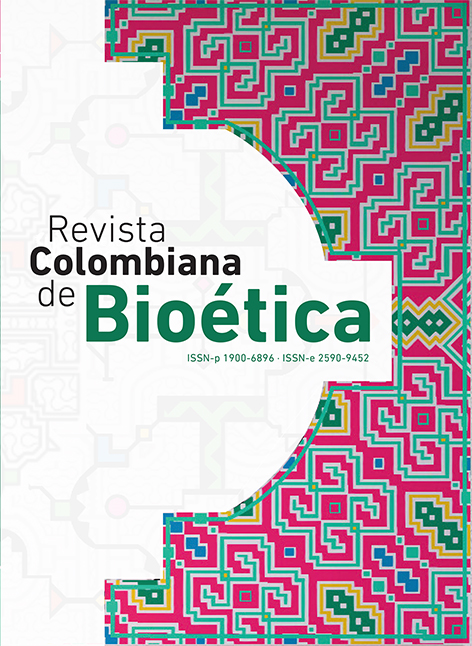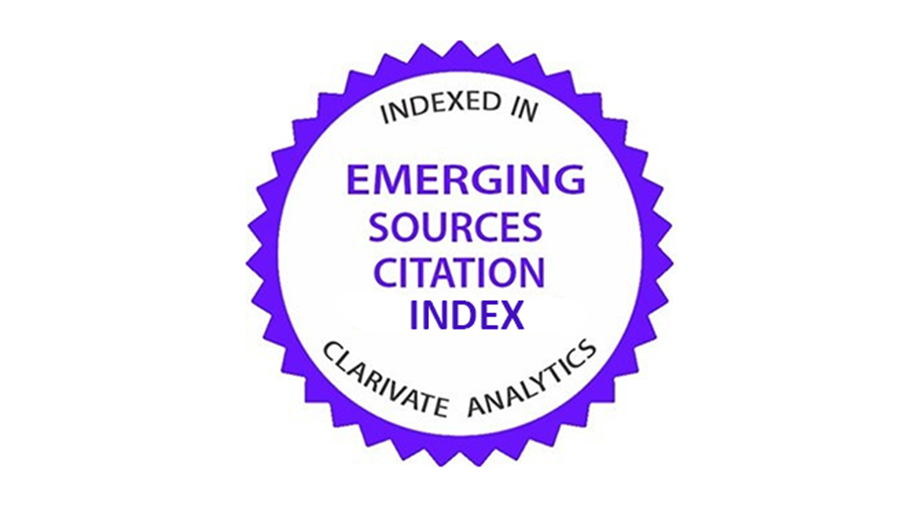Dividuation and incompossibility of ethical principles in self-management of genotypic risk
DOI:
https://doi.org/10.18270/rcb.v15i2.3343Keywords:
prepacient, previvor, dividual, genotype self-management, at-home genetic tests, direct-to-consumer genetic tests, ethics of conflict, ethics of convergence.Abstract
With the possibility of detecting genetic predisposition to an increasing number of diseases, including the worldwide highly advertised tests known as at-home genetic tests, genomics, from the bioethics perspective, starts raising different new conflicts unregarded years ago. Considering the vast number of polymorphisms, people face new realities of having genetic markers associated with the risk of developing a disease, many of which have limited options for prevention or treatment. This is a process where the individual becomes a dividual (applying to this scientific advances the concept proposed by Gilles Deleuze) that should not only be concerned about their phenotype but also should handle their genotype by themselves in a context of uncertainty about their health. It is discussed that the dividuation process at a genotypic level increases the bioethical conflicts due to the emergence of new forms of optimums incompossibility between the ethic principles, reflexion made from the perspective of Ricardo Maliandi's ethics of convergence.
Downloads
References
Deleuze, Gilles. 1999. Conversaciones. Pre-Textos.
Fiedorowicz, Jess G., James A. Mills, Adam Ruggle, Douglas Langbehn, y Jane S. Paulsen. 2011. “Suicidal Behavior in Prodromal Huntington Disease.” Neurodegenerative Diseases 8, no. 6: 483-490. https://doi.org/10.1159/000327754
Food and Drug Administration. (2017). FDA allows marketing of first direct-to-consumer tests that provide genetic risk information for certain conditions. https://www.fda.gov/NewsEvents/Newsroom/PressAnnouncements/ucm551185.htm
Food and Drug Administration. (2019). Direct-to-Consumer Tests. https://www.fda.gov/medical-devices/vitro-diagnostics/direct-consumer-tests
Facing Our Risk of Cancer Empowered. s.f. “FORCE.” https://www.facingourrisk.org/index.php
González Valenzuela, Juliana. 2017. El cuerpo del alma y el alma del cuerpo. Ciudad de México: FCE.
Hottois, Gilbert. 2007. ¿Qué es la bioética? Bogotá: Universidad El Bosque.
Lemke, Thomas. 2004. “Disposition and determinism genetic diagnosis in risk society.” The Sociological Review 52, no. 4: 550-566. https://doi.org/10.1111%2Fj.1467-954X.2004.00495.x
Lemke, Thomas. 2005. “From eugenics to the government of genetic risks.” En Genetic Governance: Health, Risk and Ethics in the Biotech Era, editado por Robin Bunton y Alan Petersen, 95-105. New York: Routledge. http://www.thomaslemkeweb.de/engl.%20texte/From%20Eugenics.pdf
Maliandi, Ricardo. 2010. Ética convergente. Fenomenología de la conflictividad. Buenos Aires: Ediciones Las Cuarenta.
Maliandi, Ricardo, y Oscar Thüer. 2008. Teoría y praxis de los principios bioéticos. Remedios de Escalada: Ediciones de la Universidad Nacional de Lanús.
Mukherjee, Siddartha. 2017. El gen. Barcelona: Editorial Debate.
National Institutes of Health. (s.f.). “What is direct-to-consumer genetic testing?” MedlinePlus. https://medlineplus.gov/genetics/understanding/dtcgenetictesting/directtoconsumer/
Rose, Nikolas. 2012. Políticas de la vida. Biomedicina, poder y subjetividad en el siglo XXI. La Plata: UNIPE Editorial Universitaria.
Erkelens, A., Lineke Derks, Aisha S. Sie, L. Egbers, G. Woldringh, Judith B. Prins, Peggy Manders, y Nicoline Hoogerbrugge. 2017. “Lifestyle Risk Factors for Breast Cancer in BRCA1/2-Mutation Carriers Around Childbearing Age.” Journal of Genetic Counseling 26, no. 4: 785–791. https://doi.org/10.1007/s10897-016-0049-4
Winchester. E. y Shirley V. Hodgson. 2006. “Psychosocial and ethical issues relating to genetic testing for BRCA1 and BRCA2 breast cancer susceptibility genes.” Women's Health 2, no. 3: 357–373. https://doi.org/10.2217/17455057.2.3.357
Downloads
Published
How to Cite
Issue
Section
License
Copyright (c) 2020 Revista Colombiana de Bioética

This work is licensed under a Creative Commons Attribution-NonCommercial-NoDerivatives 4.0 International License.

Esta obra está bajo licencia internacional Creative Commons Reconocimiento-NoComercial-SinObrasDerivadas 4.0.















